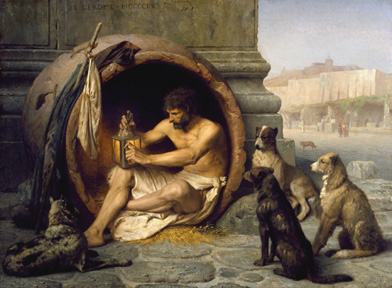Adopting a free open-air spirit
 A New Year has dawned. almost everybody seems to be paying too much
attention to buying and owning various household items from clothing to
electronic goods. There is nothing wrong in going on a spending spree if
you have the means. The trouble arises when you have to borrow money to
do so. In a consumerist society a lot of goods are bought and sold in
the open market. Consumerism has spread its tentacles to every strata of
society and everybody has to pay a price for their existence. A New Year has dawned. almost everybody seems to be paying too much
attention to buying and owning various household items from clothing to
electronic goods. There is nothing wrong in going on a spending spree if
you have the means. The trouble arises when you have to borrow money to
do so. In a consumerist society a lot of goods are bought and sold in
the open market. Consumerism has spread its tentacles to every strata of
society and everybody has to pay a price for their existence.
The Buddha advised his followers to be content with what they had. In
other words, he said to enjoy real happiness you need to have only the
bare essentials. The craze for amassing wealth and the desire to live in
luxury lead to unhappiness in the long run. Even certain philosophers
who who lived in ancient Greece believed in the virtue of possessing
leas of material wealth. what is more, a few Greek philosophers rejected
worldly values and opted to live on the streets.
|

Plato winces when I track dust across his rugs; he
knows that I’m walking on his vanity.
- Diogenes of Sinope
(c.404 - 323 BCE)
|
Diogenes of Sinope is a shining example. He flouted convention by
eating only discarded scraps of food. He dressed himself in filthy rags
and preferred to live in an abandoned tub. He was always surrounded by
stray dogs and eventually earned the nickname “The Dog.” With all such
extremist ideas abut life, Diogenes shared Socrates’s passion for virtue
and rejection of material comfort. What really went wrong was that
Diogenes turned out to be an incorrigible extremist.
External restrictions
Diogenes argued that to lead a happy life, it is necessary to let go
of external restrictions imposed by society. For instance, we do most of
the activities to satisfy societal norms. society expects us to to live
in houses, not under trees. We are expected to get married, produce
children and educate them. We are duty bound to look after our life
partners, children and elders.
In the process, we are bound to earn money, save a part of our income
and raise loans if we run short of funds. Then we start buying consumer
items and fill our houses with them. However much we spend on essentials
and sometimes in essentials we will never be happy.
When we have amassed wealth, we start living in fear. We take
precautions against burglary and theft. All these activities complicate
our life leading to unhappiness and stress. If we can live a simple
life, governed by reason and natural impulses most of our worries will
disappear.
Desire for wealth
The million dollar question is whether we can renounce our desire for
wealth and comforts. All the major religions have advised us not to
amass wealth. The Buddha, Jesus Christ and Prophet Mohammad wanted us to
give away whatever wealth we have accumulated. However, most of us pay
only lip service to such religious teachings.
Diogenes was the first of a group of philosophers who became known as
the Cynics, a term taken from the Greek kunikos, meaning “dog-like.”
They were determined to spurn all forms of social custom and etiquette.
According to Diogenes, the happiest person is someone who lives in
accordance with the rhythms of the natural world. He strongly believed
that we should be free from the conventions and values imposed on us by
the civilised society.
Sturdy character
Diogenes once said, “When I saw a child drinking from his hands, I
threw away my cup.” In a civilised society we may not be able to emulate
his example. If we try to do so, we will be accused of going back to
barbarism. However, we can follow the spirit of what he said. If we are
self-disciplined, we will be able to control most of our desires and
appetites.
The Cynics admired Socrates’s sturdy character and wholeheartedly
accepted the basic premise that excessive wanting always leads to
unhappiness. Today none of us will be able to follow the Cynics’s way of
life Yet, as another leading Greek philosopher Epictetus said, Cynicism
will help us to adopt a “free open-air spirit.” |

